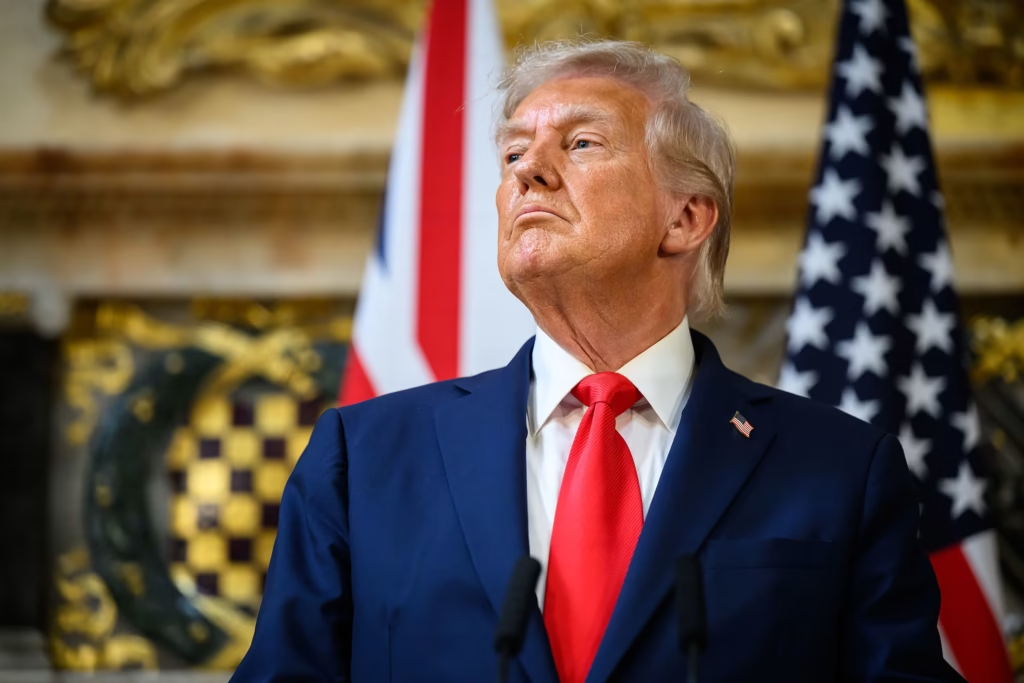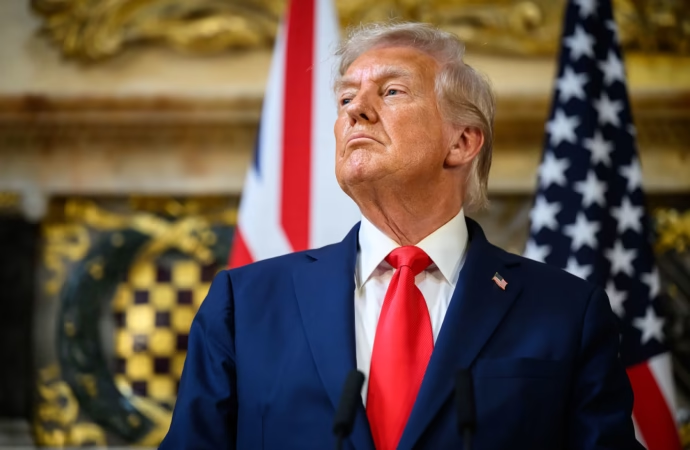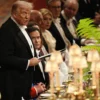Washington, D.C. — In a sweeping change to U.S. immigration policy, President Donald Trump has signed a proclamation that imposes a $100,000 annual fee on applications under the H-1B visa program, marking one of the most significant overhauls to the system in years. The measure, part of a broader effort to prioritize U.S. workers and
Washington, D.C. — In a sweeping change to U.S. immigration policy, President Donald Trump has signed a proclamation that imposes a $100,000 annual fee on applications under the H-1B visa program, marking one of the most significant overhauls to the system in years. The measure, part of a broader effort to prioritize U.S. workers and tighten restrictions on legal immigration, is expected to reshape hiring practices—especially in the tech sector.
Policy Details
- The President’s proclamation mandates that new H-1B visa petitions (especially those filed by foreign nationals outside the United States) be accompanied by a $100,000 payment to the government.
- The requirement aims to restrict entry under the H-1B program for specialty occupation workers unless accompanied by the payment.
- Employers will need to maintain documentation of payment; U.S. immigration and consular authorities are instructed to enforce the rule, and failure to comply may lead to denial of entry or petition approval.

Scope and Timing
- While certainty is still developing, the White House has clarified that the fee will apply to new applicants, not existing H-1B visa holders. Specifically, renewals or persons already in H-1B status are, according to administration officials, not subject to the new fee.
- The fee takes effect as of Sunday, following the signing of the proclamation. Employers and foreign nationals have been advised to assess travel and filing plans in light of the new rule.
Administration Rationale
The Trump administration asserts several motivations for the change:
- Protecting American workers — Officials say the existing H-1B system is being exploited in ways that depress wages and displace U.S. workers, especially in technology and specialized fields.
- Curbing abuse and ensuring higher standard — By setting a high fee, the policy intends to limit use of the program to only those employers and individuals deemed sufficiently valuable.
- Encouraging domestic training and hiring — Commerce Secretary Howard Lutnick emphasized that the U.S. should “train Americans” and reduce dependency on foreign workers where possible.
Conclusion
The imposition of a $100,000 annual fee for H-1B visa applications marks a landmark change in U.S. immigration policy. Designed to reduce reliance on foreign high-skill labor and prioritize domestic employment, the rule has far-reaching implications for employers, foreign nationals, and the global tech workforce. However, legal and implementation challenges remain. As this policy takes effect, its full consequences—both intended and unintended—will become clearer.

















Leave a Comment
Your email address will not be published. Required fields are marked with *